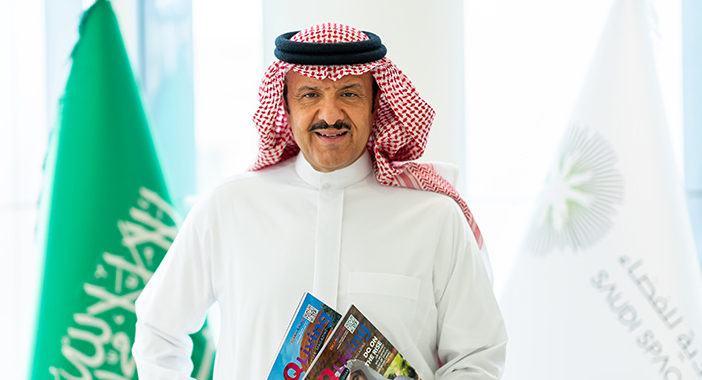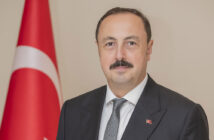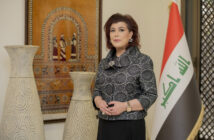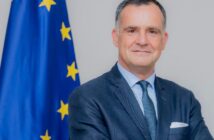BY ALEXANDER WOODMAN
Meet the prince who has probably done it all in a career that spanned years of experiences in airspace and tourism: the first member of a royal family to fly in space, the first Arab to fly in space, the first Muslim to fly in space, the youngest person to fly on the Space Shuttle, the Tourism Minister since 2000 until recently when he became the Chairman of the Board of the Saudi Space Commission. And now, meet HRH Prince Sultan, champion of people with special needs and disability research.
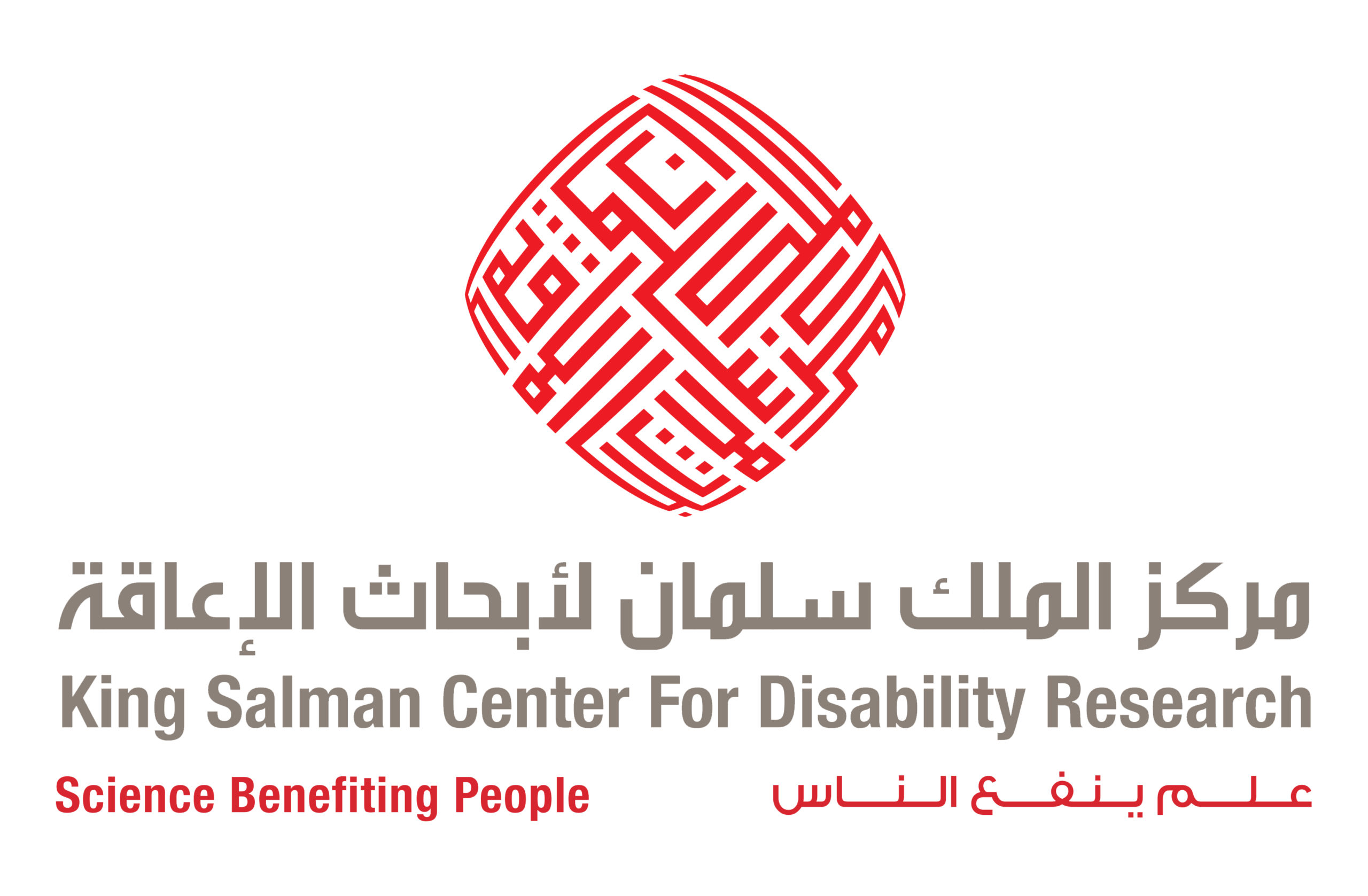 The King Salman Center for Disability Research (KSCDR) is considered as the brainchild of His Royal Highness Prince Sultan bin Salman bin Abdulaziz. More than three decades ago, Prince Sultan envisioned the pressing need to fight disability through scientific research that is aimed at understanding, preventing, and curing disability at its root. As a result of this long-term vision and the patronage of the Custodian of the Two Holy Mosques King Salman bin Abdulaziz, a special charter was issued by the Ministry of Social Affairs authorizing the establishment of the King Salman Center for Disability Research. The constant patronage of King Salman allowed the center to become one of the few organizations in the world that are fully dedicated to disability-related research with its central message of “science benefiting people.”
The King Salman Center for Disability Research (KSCDR) is considered as the brainchild of His Royal Highness Prince Sultan bin Salman bin Abdulaziz. More than three decades ago, Prince Sultan envisioned the pressing need to fight disability through scientific research that is aimed at understanding, preventing, and curing disability at its root. As a result of this long-term vision and the patronage of the Custodian of the Two Holy Mosques King Salman bin Abdulaziz, a special charter was issued by the Ministry of Social Affairs authorizing the establishment of the King Salman Center for Disability Research. The constant patronage of King Salman allowed the center to become one of the few organizations in the world that are fully dedicated to disability-related research with its central message of “science benefiting people.”
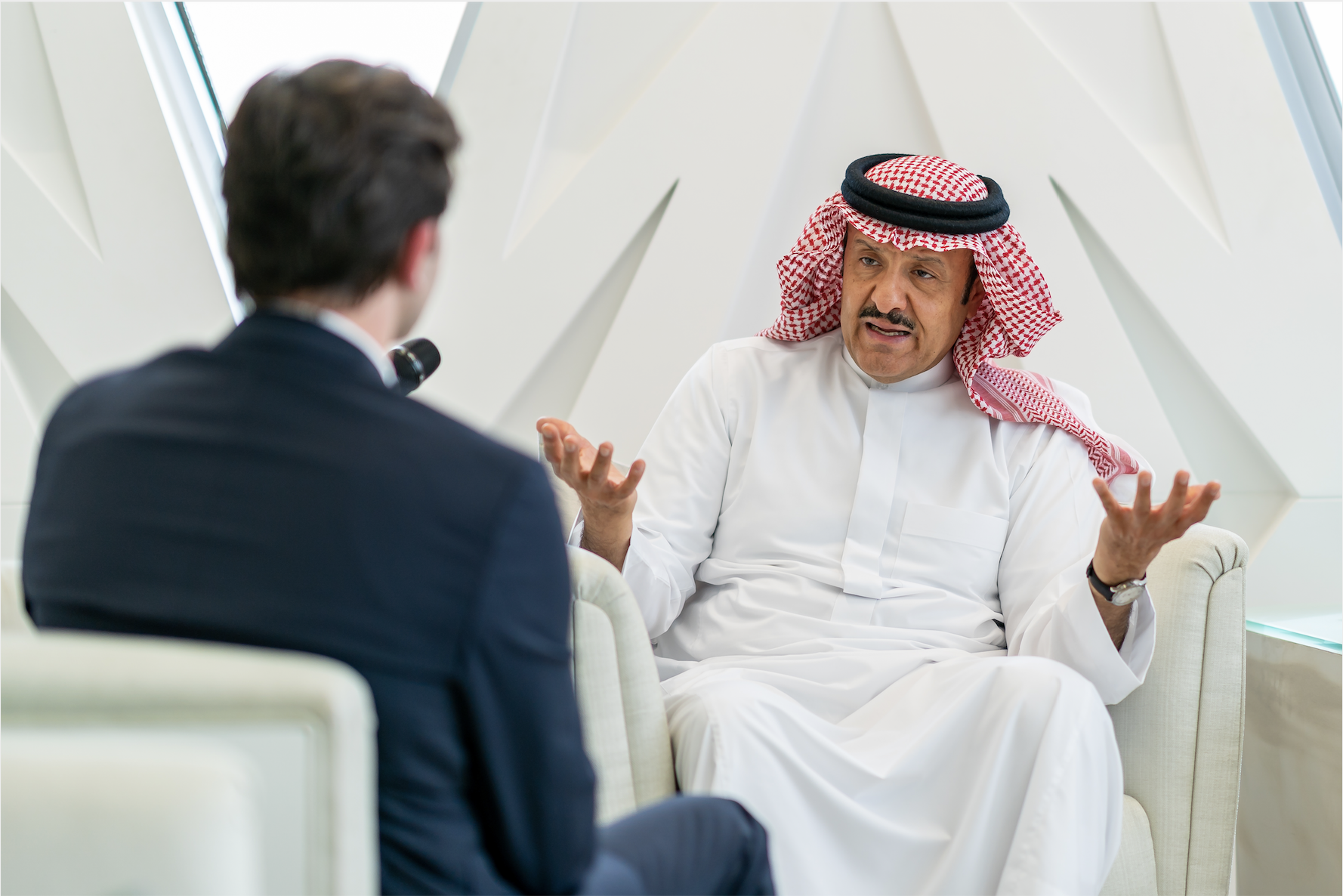 We had the honor to interview HRH Prince Sultan on KSCDR’s latest projects and updates.
We had the honor to interview HRH Prince Sultan on KSCDR’s latest projects and updates.
As the Chairman of the Board of Directors at KSCDR, can you discuss the present research plan of the center for 2020? What are the priorities?
My involvement with the issue of disability within the Kingdom began through an organization called the Disabled Children’s Association (DCA). For about 35 years, this outstanding institution has been expanding its partnerships, presenting awards, and building its investments all over the country. Today, there are about fourteen DCA centers in the Kingdom. In addition to my work as a professional pilot, I became a candidate for the DCA Board of Directors.
On a flight back from the United States, I had some time to reflect on what it would mean to me to get the position. Although I had limited knowledge about life with disability, my goal was to utilize what resources I had to help better the lives of this marginalized group I was hoping to represent. Firstly, I felt that the DCA must do everything designed to transform people’s way of perceiving their disabled peers and to educate the public about prevention practices.
After being selected as Chairman, I increased the mission of the group to not only assist disabled children. It was time to increase the fight against prejudice in the KSA. As these new ideas developed and became an implementable plan, I submitted the blueprints to create the King Salman Center for Disability Research (KSCDR). Part of its mission would be to face the issue of disability head-on before it becomes irreversible or inevitable. Once the KSCDR had been officially accepted and received initial funding from the King, we created a baseline of operations and a mission that it would follow to meet our goals.
Gradually, the organization grew, and the founders, including myself, expanded its horizons towards bigger goals. The concept behind the research center was rather than work for the sake of general scientific progress, providing assistance, spreading awareness, and uniting people around a cause, we would do more. The research center would foster modern solutions and scientific engagement in the relevant fields. One of the programs implemented by the center was “early detection,” which allowed researchers to identify the presence of a disability and combat its spread during the earliest stage of a newborn baby’s life. This testing has helped countless families to continue to have healthy children. Given the limited funding, this program, which was implemented in 2006, was a great success well ahead of its time.
One of the center’s proudest moments was when it was instrumental in passing the Disability Accessibility Law in Saudi Arabia. The project was a challenge for everyone involved, but the struggle paid off when the law was officially recognized. Besides such significant breakthroughs, the center has sponsored many international conferences to raise awareness about the issues of disabled people. Coincidentally, during an international conference in 2018, I had just completed a three-month rehabilitation and recovery program for a very serious ski injury, which left me with a titanium implant in my leg. This injury gave me an entirely new perspective on the lives of physically impaired people. The organization based in Riyadh, Saudi Arabia, continues to conduct and fund all aspects and ages of disability. It is an accomplishment of which I am quite proud.
How did you use this experience of being temporarily disabled in improving the KSCDR?
Using my experience in a wheelchair as a reference, the KSCDR came up with a brilliant campaign idea called “Try the Chair.” Over one hundred Saudi ministers and officials were challenged to negotiate a specially prepared obstacle course in a wheelchair. The campaign in Saudi Arabia was aimed to demonstrate the hardship of having movement limitations. It also gave a first-hand experience to those who are in the position to offer support to the cause. The campaign proved to be a huge success, effective both in a practical and an emotional sense.
In 2018, Prince Dr. Abdulaziz bin Mohammed bin Ayyaf was the mayor of Riyadh, and King Salman was the governor. They were faced with the difficult challenge of “trying the chair,” which neither of them managed to accomplish. Right then, many offered their financial sponsorship. The donations received after the campaign were used to make Saudi Arabia an accessible country for the disabled. It took a lot of work to breach the bureaucratic barriers of the government and achieve real changes within the Kingdom. King (then Prince) Salman became one of the most prominent champions of the cause. Partly due to his help, the accessibility law was approved by King Abdullah within days. I still remain very grateful for his support.
During the conferences centered on disability, it was decided to create a National Council for the Disabled. A similar proposal was briefly reviewed nine years ago but did not pass. When Prince Salman became King, his position for disability awareness helped to establish the demand for a council as a part of the accessibility law. However, during the last conference conducted two years ago and attended by thousands of people, the KSCDR decided to aim higher and propose an even more significant idea. They wanted to have a government commission instead of a simple national council. This proposal was approved by the government; the center lobbied for it and helped it to become law in the KSA. The commission is now chaired by the minister of social welfare, who was the president of the DCA and a former partner.
The establishment of the KSCDR was a tremendous milestone in achieving accessibility in the Kingdom and legally protecting people with special needs. What inspired you to propose such a momentous idea and move forward with its implementation?
During long-term flights, pilots have a lot of time for self-reflection. On one flight where I was the captain of an eight-hour flight to Europe, absorbing the silence of the cockpit fueled my thoughts. It is important to note that while a pilot is free to exercise freedom of thought on the plane, he will never lose laser focus and concentration during the flight. Since my candidacy was proposed for the Board of the Disabled Children’s Association, I took some time to reflect upon the change that I could make with this new position. When I want to enter an organization or industry that I know nothing about, I try to access what I could bring to the place. In this case, my goal was to create a world-class organization, which would be capable of competing anywhere in the world. It is always important to begin with a strong team.
The center became one of my top priorities as I set out to reinvent the culture of the organization with the help of my peers. Some partnerships were changed into a new format; some directions were re-examined and reformatted, some relationships, especially with the government, were energized and reactivated! It was a very enjoyable experience.
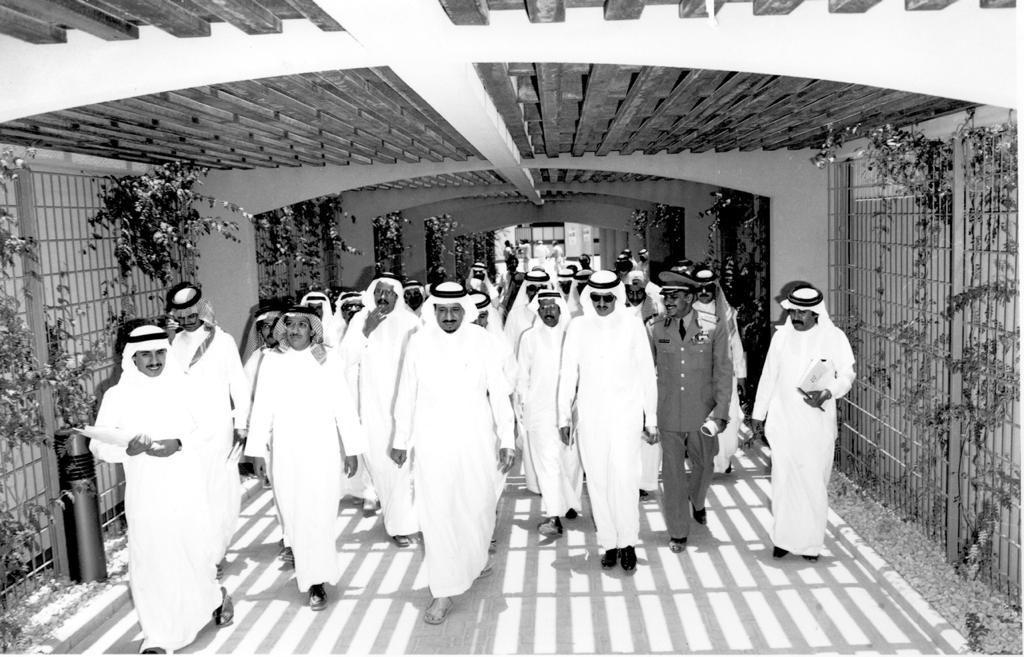
As someone with a successful career in many organizations, what was the role of the Diplomatic Quarter in the advancement of some of these institutions?
The DQ had been vital for housing the King Salman Center. Recently, a new learning program has been launched with Boeing. Among its many partners, Boeing serves as a benchmark of success, along with many other high-ranking universities and companies as partners of this endeavor.
On a more sentimental note, DQ is where I grew up, so I have a powerful personal and emotional connection to it. It is incredible how the Diplomatic Quarter is currently being reinvented. The building of the disabled people’s commission was an endowment for the DCA. An American architect had designed a natural construction that had a lot of light and costs much less in terms of energy. It eventually proved to be award-worthy. The government bought the building from the DCA, and it was later assigned to the Ministry of Tourism, where, interestingly enough, I also have had professional experience. In the year 2000, the center moved into a different DQ office. Coincidentally, the King asked me to create a space commission and become the chairman of the board. Since it was designed to be in the DQ as well, a building just finished by Arabsat was chosen as an appropriate fit. It is a fantastic place, both in terms of the location and the architectural genius of the building. It was the perfect fit!
Can you talk about your experience in DQ and a little about your team?
I have been a pilot, an astronaut, a former minister for the Saudi Tourism and National Heritage Commission, and Chairman of the KSCDR. I try not to shy away from any job or interest that appeals to me. All of the organizations that I have had the privilege to work with continue their paths towards growth. Many have become role models in accountability, success, accomplishment, and delivering strong value to our country. One crucial aspect of successfully expanding is the ability to find good people to partner with these ventures. As someone who believes in the premise of unity, I believe in the essential value of a well-organized team with members who want to make a difference for everybody else.

What is your vision of the concept of the Diplomatic Quarter? How does it contribute to human unity?
There are endless opportunities for each of us in the world, and particularly in the DQ. Today, with the evolution of the internet, the future seems bright, especially in terms of connecting people. Travel will be one of our most potent tools to aid in the accomplishment of big goals. It is now possible to rearrange plans quickly, which makes the world a much more dynamic place. The Diplomatic Quarter is a role model of unity, and hopefully, one day, there will be unity and peace among even the most diverse groups. Many will call it the “end of nationalism” when we will all be familiar and accepting of each other and each other’s countries and cultures. The world is becoming much more open to issues such as the environment, the stock market, the movement of economies, and curing disease. There are so many issues to work on, and I have a great deal of hope for the next generation.
The DQ team would like to express its gratitude to Zaid Mohammed Al Zaid, Hamad Ibrahim Al Manie, and Hala Mohammed Al Barrak for organizing the interview, warm welcome, and hospitality.

